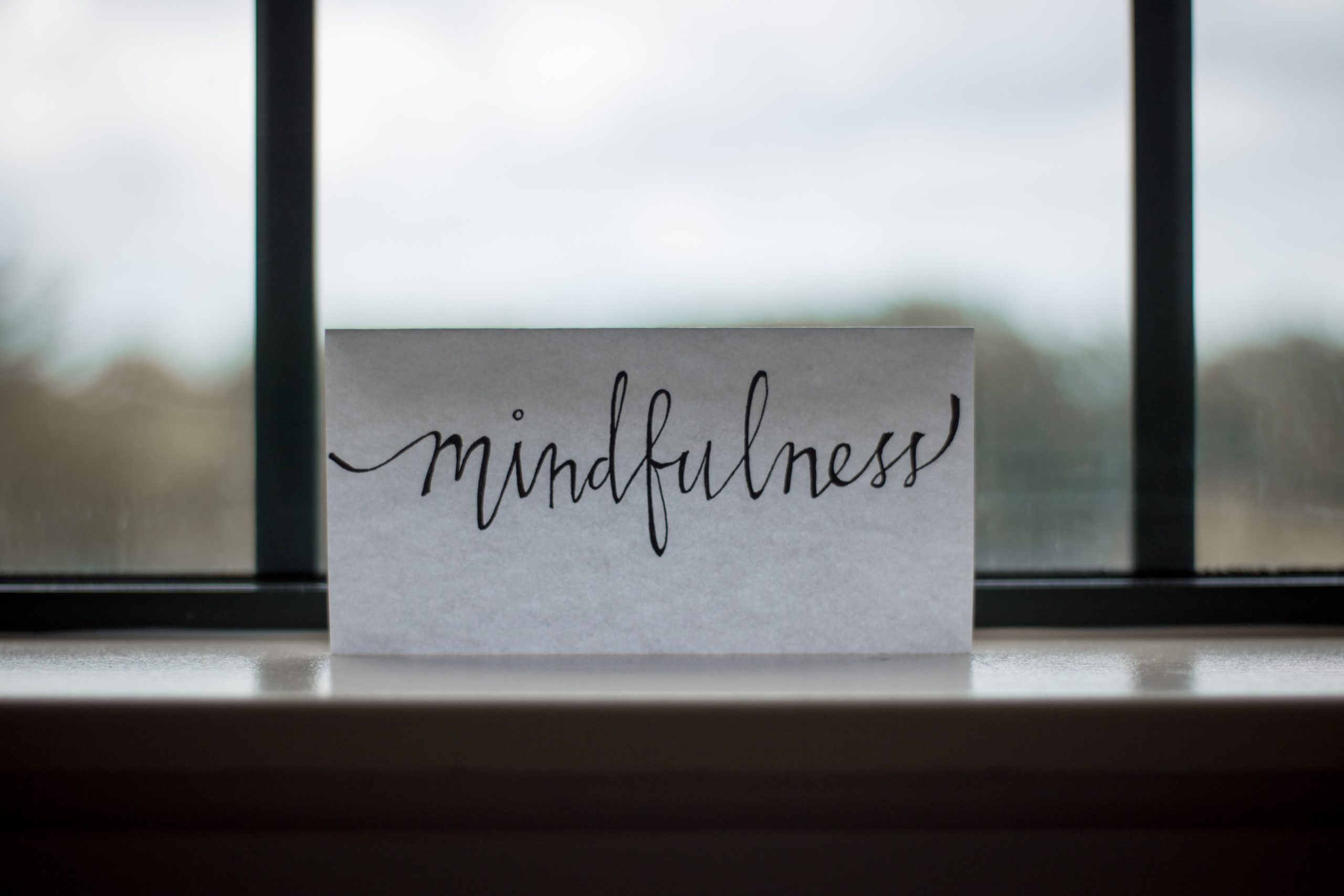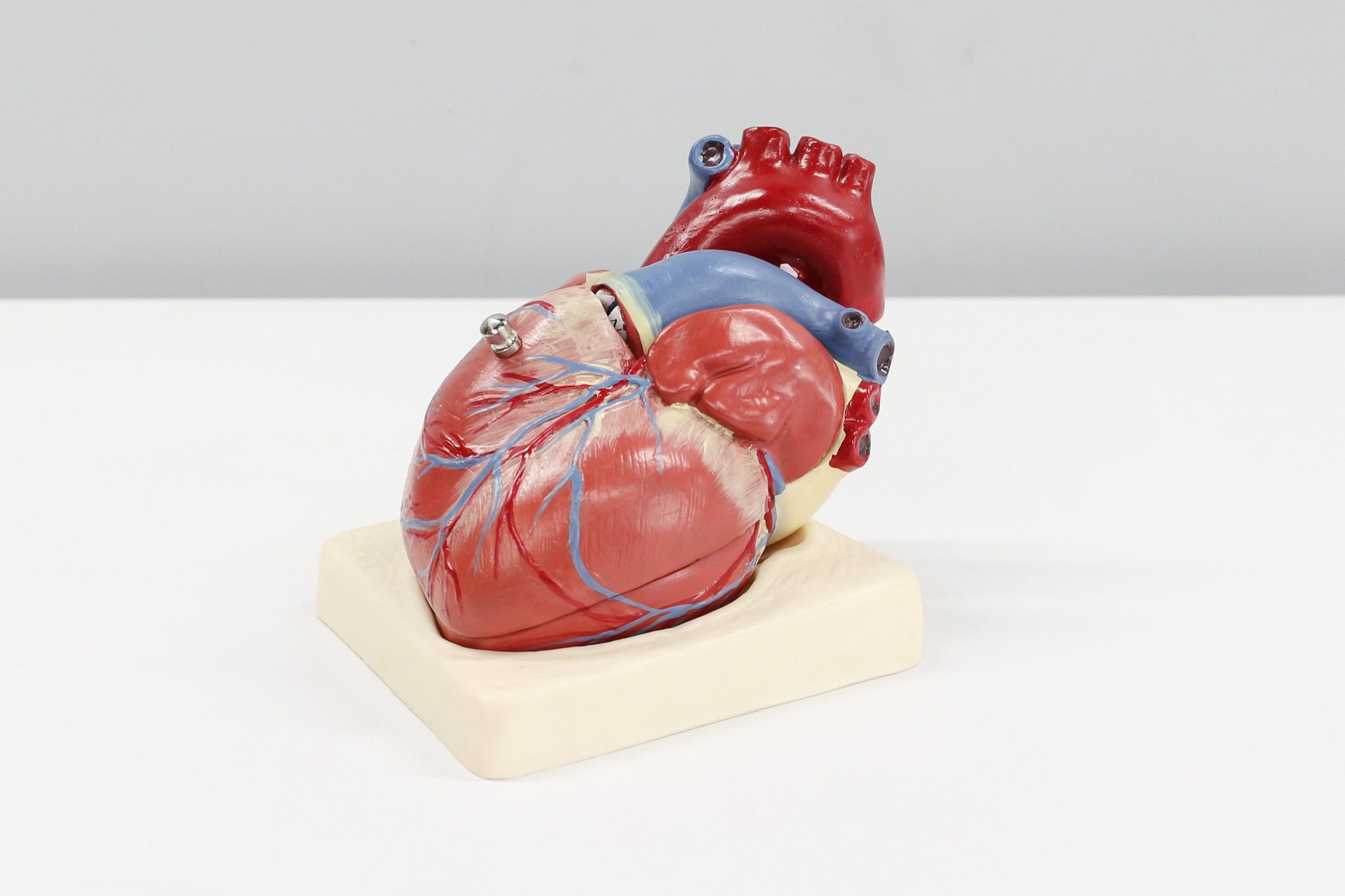It may enhance your memory

Ever wondered why certain moments from high-stress situations are vividly stuck in your mind? It turns out that a spike in stress hormones may actually lead to temporary boosts in memory. This would have been beneficial for our ancestors when reacting to immediate threats, to make sure they remember and avoid them in the future. So, if you find yourself remembering specific details, or perhaps solutions, during intense situations, you can thank stress (and our ancestors) for that.
You could experience an immunity boost

This one may seem odd, but a quick jolt of stress causes the body to produce more corticosteroids, which can briefly enhance our immune system. You could think of this like the body’s way of preparing for potential injuries or infections. So, the next time you’re under pressure and feeling the stress, take comfort in the fact that your body is prepping itself to fight off illnesses.
It helps improve your resilience

Just as muscles grow stronger with exercise, encountering short bouts of stress regularly and managing it can actually make you more resilient. Over time, you learn how to respond, adapt, and bounce back from high stress times. You can consider it like an emotional and psychological gym – the more you train, the better you become at handling future challenges.
Stress might sharpen your problem-solving skills

High-stress situations can surprisingly improve your problem-solving abilities. It sounds counter intuitive, as you’d think having more time to think and reflect in a low-stress situation may be better. But, under high stress, the brain, recognizing the need for ‘thinking on your feet’, can redirect its focus, helping you analyze and solve problems more efficiently.
It can enhance your performance in certain situations

Ever heard of the ‘fight or flight’ response? Stress can trigger this, helping to elevate your performance levels. So, whether it’s an athlete performing in a competition or you needing to meet a tight work deadline, that surge of adrenaline you feel can push you to achieve more than you might under normal circumstances.
You might notice heightened awareness

When faced with stress, your senses might become temporarily sharper. The heightened awareness is the body’s way of ensuring you’re more aware of your surroundings – essentially it’s to allow for quicker reactions to potential threats. It’s a throwback to our ancient ancestors who relied on this heightened state to detect and escape from predators.
It could boost your motivation

A moderate amount of stress, particularly stress that you see as a challenge rather than a threat, can be a powerful motivator. It can push you to prepare better, work harder, and achieve your goals. Think about stressing for an upcoming presentation – it probably motivated you to spend more time and focus more thoroughly to prepare, right?
Stress may improve your learning capabilities

While chronic stress can have detrimental effects on the brain, short bouts of stress might actually contribute to better learning. The release of certain hormones during stressful periods can help with remembering new information, ensuring it sticks and can be recalled when needed. So, in a sense, the stress you experience today might better equip you with knowledge for tomorrow.
It can stimulate your creativity

Isn’t it odd how under certain pressures, our brains somehow flick a switch and suddenly, ideas flow? If you’ve ever been in an escape room, you’ll possibly have experienced this – where you leave the room surprised at all the clues you thought of. It’s the pressure, and solving a problem that reveals solutions and concepts you might not have discovered in a relaxed state.
You might observe improved social bonding

As we go through life’s challenges, the shared experience of stress, particularly in group settings like with your friends, can actually be bonding moments. The joint challenge to overcome obstacles or meet a common goal can promote a feeling of unity – hence leading to deeper bonds that may have taken a lot longer to form, or may have remained dormant.
It can enhance your metabolism

Here’s a fascinating one: with stress activating your body’s fight or flight response mentioned earlier, the stress hormones released can subsequently speed up your metabolism as your body prepares to respond to the threat. This ups the rate at which your body burns calories, helping you to potentially process nutrients more efficiently, at least for a short period.
You might experience heightened altruism

Think about a stressful situation as a mirror – a reflection of our shared vulnerabilities as humans. Sometimes, being under stress can amplify our empathetic responses, as we may subconsciously relate our struggles to potential difficulties others face. It makes sense that if we face a stressful situation such as an illness, following it we are more likely to want to help other experiencing the same.
It might serve as a catalyst for positive change

Similarly, the discomfort that stress can bring can sometimes be that nudge we need to make a change. Ever been thrust out of your comfort zone? It forces you to face your limitations, doesn’t it? That feeling – the stress – can become a motivating force that moves us to reshape aspects of our lives, career, or personal habits.
Stress could foster your emotional competence

Navigating through stress can feel like an emotional rollercoster – and to get through it successfully requires being able to regulate your emotions. Managing stress could level up your understanding of emotional responses. And high emotional intelligence is key in dealing with life’s challenges.
It might increase your appreciation for relaxation

Life is never constant – it’s like a pendulum, constantly swinging between tension and relaxation. Interestingly, experiencing stress might actually enhance our capacity to value and embrace moments of calm. Remember the phrase, ‘after a storm, comes a calm’?
You could see improvements in your communication skills

When experiencing stress, you might tend to talk about your feelings or discuss solutions with others. While this can help them coming up with immediate solutions – it’s also actually improving your communication abilities. When pressure mounts, effectively communicating becomes critical, leading to more clarity and transparency in discussions.
It can sharpen your survival instincts

Stress is a remnant from our primal days, where immediate reactions to threats could mean the difference between life or death. So, when exposed to stress in the modern age, that same survival instinct still kicks in. While you’re likely not dodging predators, the heightened alertness and sharpened instincts can assist in navigating issues.
It can facilitate a healthier aging process

A dash of stress here and there might actually be a secret ingredient to aging gracefully. Research suggests that manageable levels of stress can help to fortify the brain and body, increasing its resilience to age-related diseases and cognitive decline. It also encourages the body to enhance its cellular defense mechanisms. So, don’t worry about a bit of stress here and there, it may just be keeping you young.
It could promote empathy towards others

When you’re under stress, you gain firsthand experience of what it feels like to be overwhelmed or pressured. And this can naturally translate to greater empathy when you see others experiencing the same. Being able to recognize that everyone deals with stress in some capacity encourages more compassionate interactions.
Stress might refine your prioritization skills

When under stress, our brain is often forced to properly sift through the clutter in our mind and identify what actually warrants our attention and energy. This pressure of stress helps to direct our focus towards aspects that are actually the most important in our lives, in turn, sculpting our skills to get our priorities right when navigating future challenges.
You could notice enhanced collaborative skills

Surprisingly, stress might serve as an unexpected mentor in improving your collaborative skills. When under stress, especially in group or work settings, there’s an unintended pull towards collective problem-solving and shared decision-making. It’s the collective struggle that encourages team members to lean on each other and work together.
It helps in developing coping mechanisms

Navigating through stress is of course challenging, but it also helps in constructing strong coping mechanisms. These could range from seeking support, practising mindfulness, or even exercising. Knowing how to cope with and alleviate pressure to get back to smooth waters is a super important skill.
Stress may help you realize your personal strength

Navigating through challenging times can open our eyes to our inner strength. Stress, in all its forms, can act as a hidden catalyst. Ever been stressed and afterwards been proud of how you endured, adapted, or overcame? Surprisingly, it’s in those testing moments that our inner strength often reveals itself, teaching us more about our resilience.
You might find clarity in your values

Think about when you’ve experienced moments of stress and crisis – there’s often a reflective silver lining that emerges in the form of clarifying what is genuinely important to us. Navigating stressful periods can strip away the non-essential, revealing our core values. This clarity, born from stress, can guide help to guide our future decisions, relationships, and life choices.
Stress can assist in building tolerance

Engaging with stress, in managed doses, can help to build a tolerance to it. This doesn’t mean to say you become ‘immune’ to it, but it can help your ability to work out your different stress levels. What does this mean for you? Well, if you understand your different levels, you can tailor your response accordingly, ultimately optimizing your ability to get through stressful situations.
It might enhance your crisis management skills

Swift decision making and problem solving are key components of crisis management. By. Handling stressful situations, you are subconsciously practicing these components. The result? Inadvertently fine-tuning your ability to manage crises, creating a learned bridge between stress perception, analysis, and response
It encourages adopting a healthy lifestyle

In the aftermath of stress, people often find drawn to lifestyle choices that act to reduce future stress. This could be an exploration into exercise, or adopting mindfulness, or even healthier eating habits. All of these are all aimed at providing a buffer or management strategy for future stressors. And – of course – there’s the overall benefits to your health too. Wins all around!
Stress may accelerate your recovery in certain situations

Navigating through periods of stress may, counterintuitively, actually speed up your recovery. So, how does it do this? Stress essentially catalyzes the body to activate mechanisms for repair to effectively combat potential threats (another benefit we can thank our distant ancestors for). This biochemical response could help you bounce back faster after a stressful episode.
It can lead to mindfulness and presence

In stress, with a pounding heart or racing thoughts, we are sometimes forced into a state of heightened awareness where mindful practices, such as breathing exercises, can be employed to navigate our stress. These unintentional acts of mindfulness can unexpectedly equip us with tools and practices that become vital for managing day-to-day stress and enhancing our overall well-being.
It can push your boundaries and expand your comfort zone

Stress can often nudge you to navigate through the unfamiliar – invariably broadening your horizons. This gentle push when handling stress equips you with the capability to tackle challenges head-on, gradually enlarging your comfort zone and enabling you to handle larger and larger challenges.
It might refine your confrontation skills

When faced with stressful situations, especially in friendships and relationships, avoiding confrontation isn’t always an option. The silver lining? Repeated exposure to these kind of scenarios could fine-tune your skills in addressing issues head-on. With time, you might even find you’re better equipped to handle disputes calmly and constructively.
You could develop patience through stress

Ironically, being thrust into stressful scenarios can teach patience. Sounds counterintuitive, right? But as you deal with unforeseen challenges, you also practice waiting, enduring, and pushing through. All of these can mold you into a more patient person – so, be patient, maybe dealing with stress every now and then is a worthy trade-off.
It might increase your pain tolerance

Facing stress head-on can sometimes help in enhancing your body’s pain threshold. By exposing yourself to stressful situations, your body might adjust by increasing its tolerance levels. Over time, this could mean that minor pains and annoyances affect you less. Do stressful situations sound painful? They might just be a remedy to help tolerate other pains.
You could experience improved cardiovascular fitness

Do note: chronic stress can be a heart risk, so it’s not wise to actively seek it out. But, acute day-to-day stress might actually benefit cardiovascular health in some of us. Basically, that temporary spike in heart rate and blood pressure can, in some ways, mimic the effects of short bursts of physical exercise, prepping the heart for future exercise or periods of stress.
It might provide a temporary boost in stamina

In the face of immediate stress, your body often releases energy reserves, giving you a short-term stamina boost. Think of it as your body’s natural response to ‘fight or flight’ situations. While not a replacement for regular fitness activities, these occasional bursts could aid in moments requiring a little more exertion.
It could lead to better sleep hygiene

Ever been stressed and found yourself tossing and turning, unable to sleep? This is common, and for some, the sleep disturbances actually lead them to embark on a mission towards better sleep hygiene. This could be from establishing better pre-sleep routines, going to sleep earlier, or using white noise machines. Better sleep also leads to less stress – so in a way, it’s a nice cyclic benefit.
Stress can enhance your coordination

When faced with stress, particularly with tasks that need immediate attention, your brain is forced to prioritize and streamline its processing. This can weirdly lead to better hand-eye coordination or quicker decision-making. Over time, with repeated day-to-day exposure to see, you might just find that you can juggle more tasks with greater ease.
It may prompt personal growth

Life’s stressful chapters often serve as fertile ground for you to grow. Navigating through stress enables the development of coping mechanisms, resilience, and a deeper understanding of personal limits and capabilities. Stress, in moderate quantities, can actually make you stronger.
It can boost your discipline

An encounter with stress might unwittingly improve your discipline. Picture this: When under stress the need to manage time and resources gets intensified. With stress acting as a stern but fair teacher, you can learn to channel your efforts effectively, boosting your commitment and focus toward achieving goals.
It can cause you to act with more caution in the future

Navigating through stress, particularly when it stems from hasty decisions or a lack of foresight, often leads to a more cautious future approach. The memory of stress, might instigate a thoughtful, deliberate attitude towards decision-making. Stitching a layer of caution into your behavioral fabric.